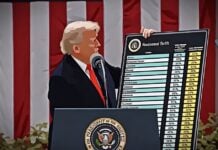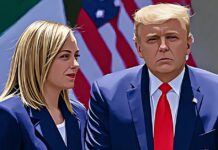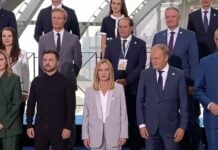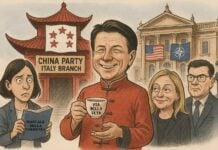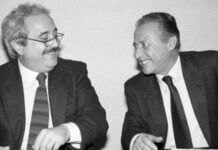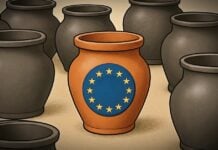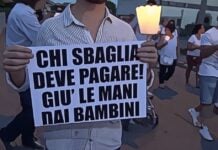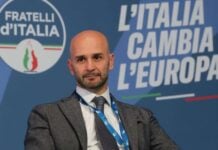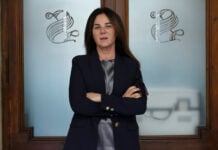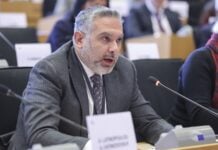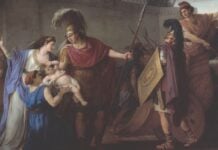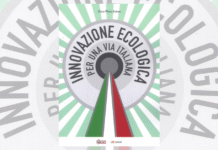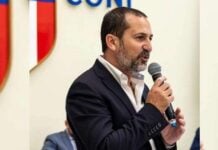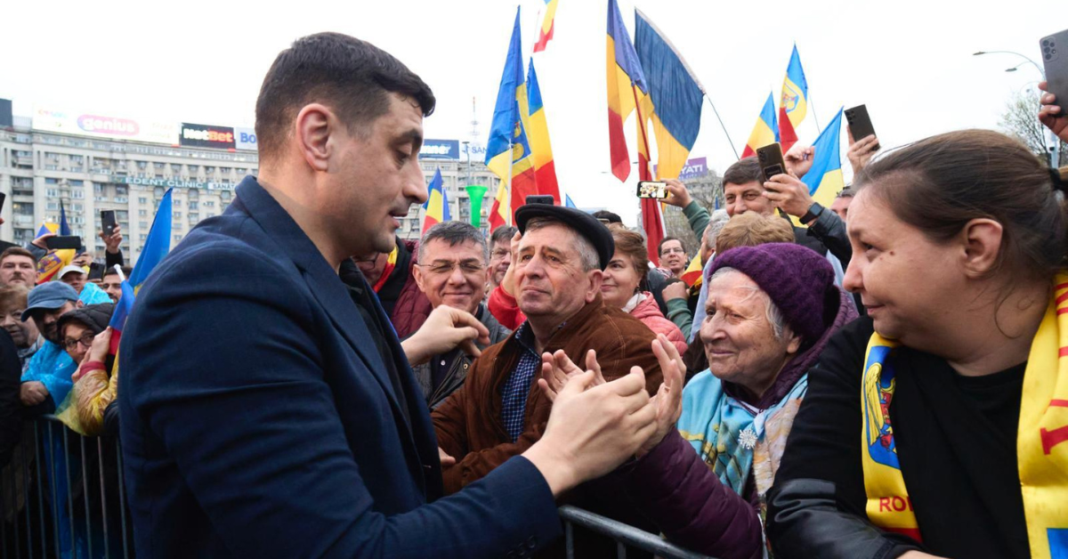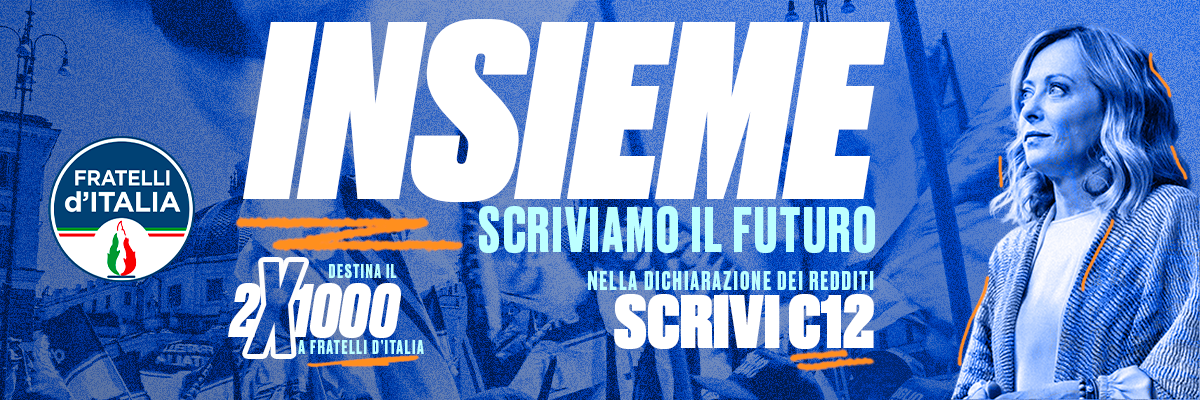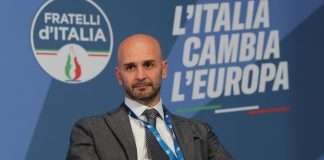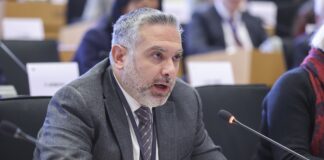We arrived in Bucharest in an atmosphere that already seemed marked by a collective distrust. A beautiful, vibrant city, but weighed down by something deep inside. A tension that did not manifest itself in shouts or street protests, but which could be read in the silences, in the looks, in the sighs of the Romanians who spoke to us of their disillusionment. Six months ago, the people had made their choice, but that choice – Calin Georgescu’s victory – had been wiped out with a stroke, without evidence, without transparency, without shame. A wound that is still open.
And it was into that vacuum that George Simion’s challenge was inserted. A challenge born from below, like all true revolutions. A challenge that did not have the support of big banks, international foundations, or emblazoned newspapers. No pre-packaged script, no strutting spokesman, no media direction. Just one man, one flag and one clear message: Romania is not a colony. The people have the right to choose who leads them. And no ambassador, no European official, no Soros-paid editorial staff can prevent them from doing so.
But George Simion did not just denounce, he talked to people, listened to stories, shook hands consumed by work, embraced mothers, fathers, the elderly and the young. We saw him do it every day, in popular markets, in forgotten villages, in the suburbs where the state never arrives but where the televisions always come to say who is ‘dangerous’, who is ‘fascist’, who should not be voted for. Yet, despite the systematic hammering, despite the infamous labels, George Simion has ignited something that is not easily extinguished: hope.
His election campaign was the most sincere political act Europe has seen in recent years. He had nothing to promise but truth, dignity and sovereignty. He spoke a language that the people understand: the language of courage. He defended values that the establishment considers obsolete: homeland, family, faith. And he did so without fear, without compromise, without coming to terms with the system.
But the system reacted as it always does when it feels threatened. It erected barriers, blacked out content, tried to manipulate public opinion. It activated the censorship machine as never before. Just think of what happened on the day of the vote: France officially asked Pavel Durov, the founder of Telegram, to censor pro-Simion content. A request worthy of a regime. A request immediately returned to sender because “democracy is not defended by destroying it, but by behaving like a democrat.”
Yet, even in the face of all this, George Simion continued to fight. He denounced the inflated lists with the names of the dead. He spoke out about the threats to the elderly in the RSAs. He documented the systematic obstructionism against diaspora voting, millions of Romanians abroad forced into impossible queues, without enough ballots, deprived of a fundamental right. And we were there. We saw all this. We spoke to its volunteers. We listened to the dignified pain of the people.
So, as in France and Spain, all the pro-establishment forces have joined forces in Romania. Not to offer an alternative, not to propose a vision of the future, not to defend a project. But simply to prevent ‘the fascists’ from winning. It is always the same story, always the same pattern. Waving the bogeyman of extremism to disqualify the opponent, labelling him, marginalising him.
And let’s be clear: we cannot know whether these elections were rigged. We have no concrete elements to say that the result was altered or manipulated. But we do know one thing, with certainty: it was the information that was manipulated. With a scientifically orchestrated, hammered, capillary campaign aimed at delegitimising George Simion and his voters, turning them from citizens into suspects. All this with the complicit silence of the European Union, which turned away, as it did six months ago when regular elections were cancelled – without explanation.
George Simion is not Donald Trump. He does not have his economic strength, he does not have a media structure, he does not have an entrenched party behind him for decades. He is 38 years old. He is alone. And Romania is not America. It is a country with a fragile democracy, too often squeezed between external pressures and the internal apparatuses that survived post-communism. Let us remember that only six months ago, regular elections were cancelled without anyone – neither in Brussels nor in Washington – batting an eyelid.
Yet, despite suspicion, despite disappointment, despite anger, we cannot afford to sink to the level of those who would like to erase dissent. We must make it clear: it is our duty to defend democracy even when it is the opponents of our values who win. Because this – more than anything else – marks the difference between us and them.
They censor, repress, annul, build enemies. We do not. We still believe in popular sovereignty. We respect the vote. Even when it disappoints us. Even when it hurts us. Because if we renounce that, we renounce everything.
We of La Voce del Patriota will continue to be wherever we fight in defence of the people and the West. We will continue to tell, to document, to defend freedom. Because the battle being fought today in Romania is the same battle being fought in Italy, in Hungary, in the United States, wherever there is a people that refuses to bow down to the establishment and the dictatorship of the single thought.
And if it is true that every generation has a challenge to face, ours is this: defending truth in an age of lies. To defend freedom in a time of censorship. Defending the people in a world that has forgotten what the word democracy really means.

